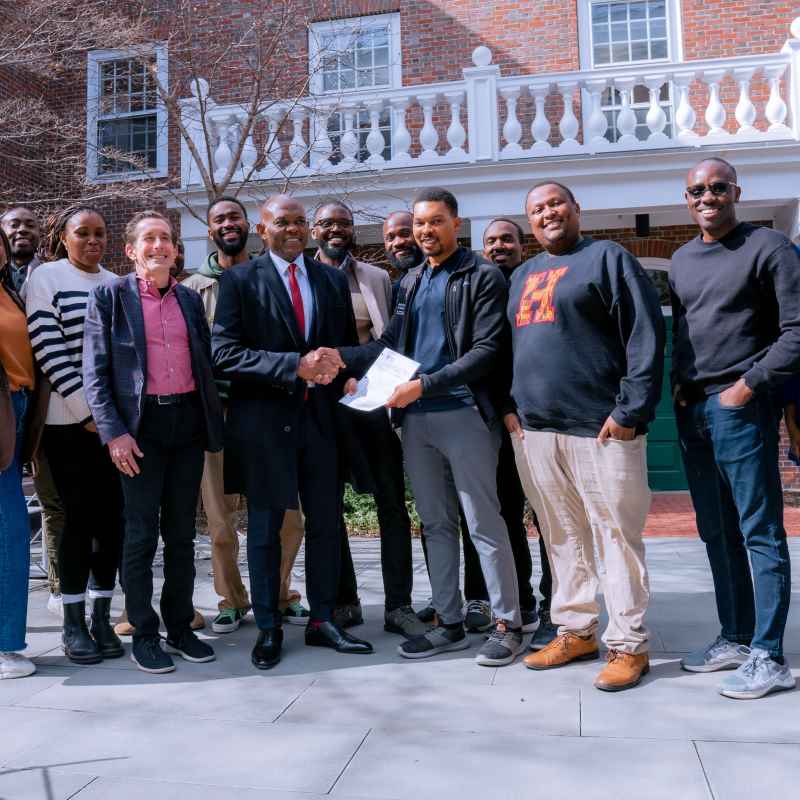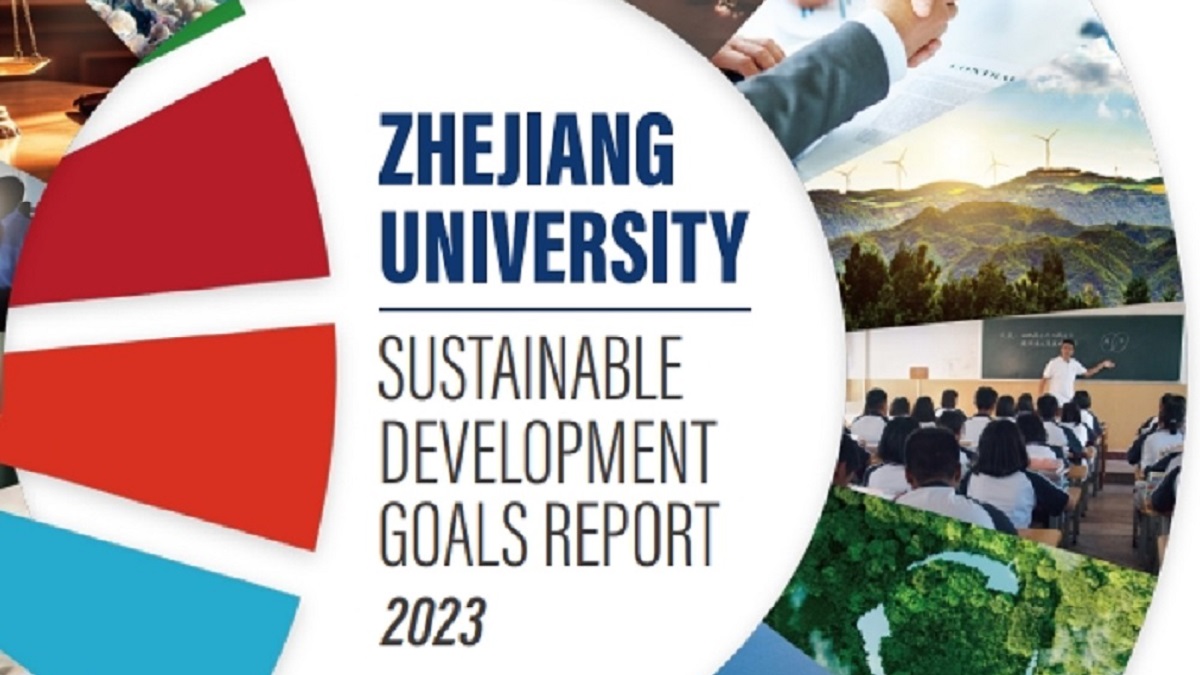A proactive introduction of solid local content regulations will no doubt foster job creation, help combat energy poverty, and promote hope and human dignity for the Namibian people
WINDHOEK, Namibia, March 29, 2024/APO Group/ —
By NJ Ayuk, Executive Chairman, African Energy Chamber (https://EnergyChamber.org).
Namibia’s oil and gas sector is still looking forward to reaching the production phase — S&P Global analysts don’t anticipate Namibia’s first oil to come until 2029, and the country’s first gas-to-power project is scheduled to begin in 2027. Before Namibia achieves these hotly anticipated milestones, Namibian lawmakers have the opportunity to implement thoughtful, effective policy to benefit their people. Specifically, I’m talking about local content laws that will help spread future wealth among Namibians, develop the skills of the Namibian people in oil and gas professions, and promote the establishment of Namibian oil and gas businesses. Ultimately, this will help ensure a long-term, sustainable economic impact from the resources.
Local content laws are broad policy tools that governments use across many industries. The goals of local content are multifaceted, promoting domestic businesses by requiring a certain percentage of goods or services to be sourced from domestic companies, motivating international companies to share knowledge and expertise with local firms, stimulating job growth in the domestic economy, and encouraging investment in local infrastructure that benefits the industry.
Namibia is fortunate to be in a position to benefit from the experiences of other oil- and gas-producing states. Namibia can use the best practices that have benefitted others and learn from their mistakes. Standing at the precipice of an energy revolution that will help transform its economy, lawmakers in Namibia have something of an advantage, and they need to capitalize on this.
Namibia’s Recent Finds
What’s driving the need for local content directives in Namibia’ nascent oil and gas sector are recent petroleum discoveries, in the Orange Basin in particular. That’s where, in 2022, Shell and TotalEnergies made significant finds in blocks Graff-1 and Venus-1, respectively.
Graf-1 holds an estimated 2.38 billion barrels of oil (boe). And Venus-1 is estimated to hold more than 3 billion boe — potentially the biggest discovery ever in sub-Saharan Africa.
While the commercial viability of extracting the oil still needs to be assessed, these initial discoveries have already sparked further exploration efforts. Galp Energia, for one, reported positive indications of hydrocarbons in their Mopane-1X well, hinting at the potential for the oil and gas play to extend further north. The Mopane-2X encountered a significant column with light oil in good-quality reservoirs.
Drafting Effective Legislation
To help local companies and Namibian citizens benefit from oil and gas opportunities across the industry’s value chain, Namibia currently has a draft of the National Upstream Petroleum Local Content Policy, but it hasn’t been passed into law yet. The ministry is consulting with stakeholders to make revisions that will best serve the country and her people.
The draft reflects the government’s desire to leverage its recent oil and gas discoveries for broader national development. There’s a focus on achieving a balance between local participation and attracting foreign investment.
We love to see that Namibia is moving toward implementing local content regulation or directives, and the draft policy offers a glimpse into its goals.
As I noted last year, I am heartened to see the productive cooperation of Namibian lawmakers and oil and gas companies. I have personally witnessed their efforts to ensure Namibia’s best economic opportunities. Unlike too many other African nations, Namibian policymakers are not throwing roadblocks in the way of exploration companies. They also realize that the country will reap the benefits of its new petroleum bounty only if all key stakeholders seize this historic opportunity to put the right policies in place and continue encouraging investments in energy.
That’s why it’s all the more heartening that, even after the sad passing of President Hage Geingob in February, the ruling party (the South West Africa People’s Organisation, or SWAPO) has signaled that it will maintain its business-friendly approach to energy exploration and development.
Challenges Ahead
Still, Namibia has several key local content hurdles to overcome.
For one, growing and maintaining a successful oil and gas industry in Namibia will require significant investments in infrastructure, workforce development, and regulatory frameworks. Because the complex energy sector requires high initial investment, specialized technology, particular workforce skills, and a long-time horizon for projects, it can be difficult for local companies to readily participate.
Namibia has to make sure that its local content policy leaves no room for interpretation or nuance to avoid an unfair advantage for some Namibian businesses
In addition to the huge sums of infrastructure financing needed to build out the oil and gas sector, Namibia needs to invest in training and education programs to create a skilled workforce capable of operating and maintaining this infrastructure. Without substantial input — both financial and educational — from external experts, domestic involvement will likely remain limited, despite any well-planned local content policies.
And we can’t overlook the need to define “local” clearly. Namibia has to make sure that its local content policy leaves no room for interpretation or nuance to avoid an unfair advantage for some Namibian businesses.
At the same time, it’s equally important for the country to be pragmatic in its implementation of the regulations to continue fostering investment. Namibian policymakers need to avoid government overreach. While local content regulations can have positive effects, they can also raise concerns about potential drawbacks, such as increased costs or limitations on competition. Striking the right balance between local requirements and international competitiveness will be key to the success of the fledgling oil and gas sector.
Cultivating Trust and Cooperation
Meanwhile, the energy sector must tread carefully to avoid any backlash from the Namibian citizenry. One false step could quickly crumble the people’s support for oil and gas companies.
In today’s world, simply focusing on resource extraction isn’t enough. Oil and gas companies that want to prosper in Namibia must also embrace corporate social responsibility (CSR) and social programs that foster positive outcomes for the people. Implementing sustainable practices that mitigate the environmental impact of oil and gas activities demonstrates a commitment to responsible resource development. Companies that neglect CSR risk facing community opposition and protests, potentially delaying or derailing projects.
In addition, companies with a strong CSR reputation attract and retain top talent, creating a more positive work environment. That, of course, includes women: In Namibia, women make up almost 52% of the population so ignoring their potential would be a gross oversight. A positive social impact should ideally influence government decisions and create a smoother operating environment. The Namibian government can foster this cooperation by favoring companies with strong CSR initiatives when awarding licenses and concessions.
Multinationals like Exxon, TotalEnergies, Shell, Galp, Woodside, and Chevron stand to be amazing allies in this growth. Likewise, service companies like Halliburton, SLB, Baker Hughes, Technip Energies and many others should play a big role — in boosting Namibia’s oil and gas production as well as in promoting Namibia’s local content environment. With the big contracts they’re going after, they’d be wise to start hiring and training Namibians in their oil and gas activities NOW.
A Commitment to Namibians
As long as the country continues along the path toward local content that the Geingob administration initiated, we might well see it becoming obligatory for companies to provide a local content plan and supplier development plan to be eligible to win contracts. Consider the recent ultimatum issued by Maggy Shino, petroleum commissioner of Namibia’s Ministry of Mines and Energy.
“We would like to inform those envisaging to service the Namibian oil industry that local content is mandatory, and that the Namibian government will not compromise in providing opportunities for its people to participate meaningfully in the industry,” Shino said.
In January, Shino shared the vision of the nation’s pathway to first oil. It is evident from her comments to World Oil that her people are foremost in her mind.
“First, we need to build the capacity, both in the local workforce and in the institutions that will help oversee, develop and regulate Namibia’s oil and gas industry. We also have an obligation to share up-to-date information with the Namibian people so that they can prepare effectively for first oil production,” Shino said.
She emphasized the importance of knowledge and skill transfer, to ensure that Namibian companies and Namibians themselves have the opportunity “to participate meaningfully and add value to the projects.”
Shino also called on Namibians themselves, tasking them with some amount of self-determination.
“A much bigger obligation is further placed on the Namibian people to ensure that they equip themselves with the necessary skills required. The oil industry is a highly specialized industry with high standards for HSE, and we will not compromise on the international requirements. We must ensure that the industry has an effective local content policy and regulatory landscape so that Namibians reap the fruits of their labor. This is central to sustainable governance.”
On his part the Minister who has been a strong advocate for local content focused on the role of Namibians to step up their entrepreneurial skills and personal responsibility. “Without local entrepreneurs who are curious, innovative, and willing to invest their time and energy in acquiring the necessary skills to succeed, it will be extremely challenging, and possibly even impossible, to embark on our local content journey,” Stated Tom Alweendo, the Minister of Mines and Energy.
With this mindset, Namibia’s foray into oil and gas will reignite the country’s sluggish economy by encouraging new investment and revitalizing the manufacturing sector. At the same time, a proactive introduction of solid local content regulations will no doubt foster job creation, help combat energy poverty, and promote hope and human dignity for the Namibian people.
Distributed by APO Group on behalf of African Energy Chamber.
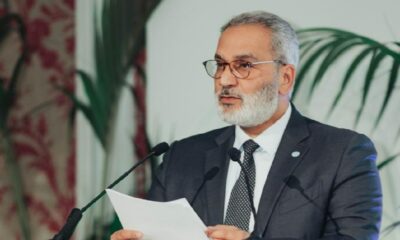
 Business4 days ago
Business4 days ago
 Business4 days ago
Business4 days ago
 Business3 days ago
Business3 days ago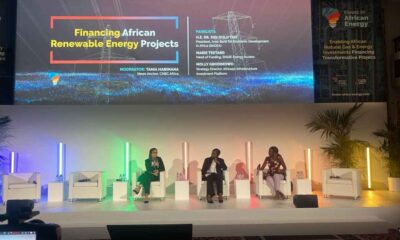
 Business4 days ago
Business4 days ago
 Business4 days ago
Business4 days ago
 Business4 days ago
Business4 days ago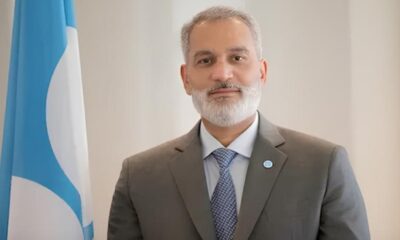
 Business3 days ago
Business3 days ago
 Business3 days ago
Business3 days ago














